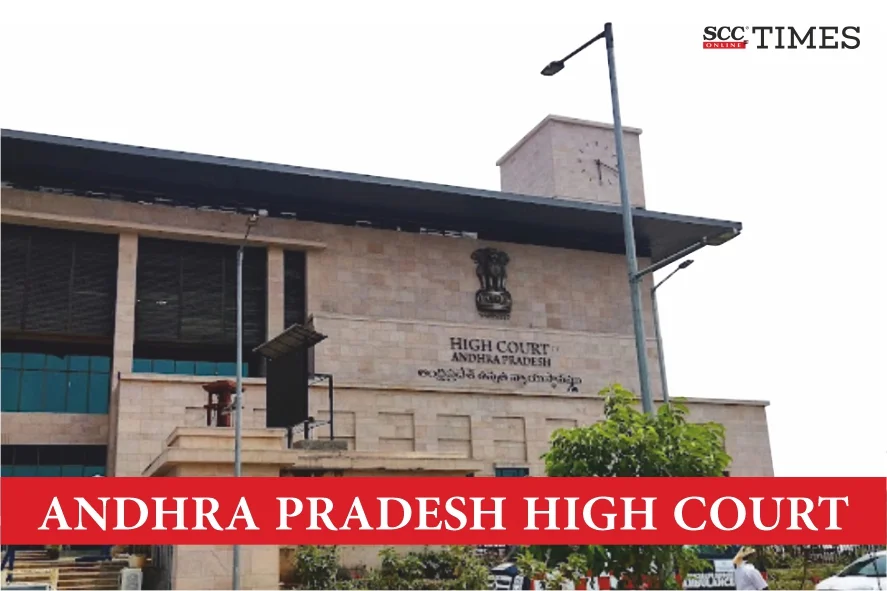Andhra Pradesh High Court: A second appeal was filed challenging the Decree and Judgment directing payment of money borrowed with subsequent interest at 6% per annum. Mallikarjuna Rao, J., upheld the Trial Court’s decision directing the defendant to repay the borrowed amount with 6% annual interest, based on a promissory note.
Initially a suit was filed by the plaintiff (respondent in the instant second appeal) seeking recovery of Rs. 37, 840 being the principal and interest from the defendant (appellant in the second appeal) based on the promissory note dated 25-02-2001. The case revolves around a promissory note dated 25-02-2001, purportedly executed by the defendant in favor of the plaintiff. According to the plaintiff, the defendant borrowed Rs. 22,000 and agreed to repay the principal amount with interest at 24% per annum. Despite repeated demands, including a legal notice dated 23-02-2004, the defendant failed to repay the amount. Consequently, the plaintiff filed a suit seeking recovery, however, the defendant denied the allegations, asserting that he never borrowed the said amount and that the promissory note was forged. He argued that he signed as “K. Gopaludu,” not “K. Gopal,” as appeared on the promissory note. He further contended that the plaintiff fabricated the note out of malice, stemming from a dispute involving the defendant’s father, who had worked as a servant in the Plaintiff’s household and later ceased working due to health issues.
The Trial Court framed three key issues for determination, whether the promissory note was forged, whether the Plaintiff was entitled to the amount claimed and if so, the appropriate relief to be granted. During the trial, the plaintiff presented oral and documentary evidence, including the promissory note and legal notice. The defendant relied on the expert opinion that the promissory note was forged and argued that his handwriting did not match the signature on the document. Despite this, the Trial Court decreed the suit in favor of the plaintiff, holding that the defendant failed to substantiate his claims. The Court awarded the plaintiff the suit amount with interest at 6% per annum from the date of filing until realization.
Aggrieved, the defendant filed an appeal before the Senior Civil Judge, Nandikotkur. The appellate court upheld the trial court’s findings, dismissing the appeal with costs. Thus, instant second appeal was filed by the defendant raising substantial questions of law, including:
-
Whether the trial and appellate courts erred in dismissing the expert opinion and placing the burden of proof on the Defendant.
-
Whether the Plaintiff failed to discharge his initial burden of proving the authenticity of the promissory note.
-
Whether the courts below improperly ignored the expert opinion, which corroborated the Defendant’s claim.
The Court noted that in the second appeal, while exercising jurisdiction under Section 100 of the CPC, this Court must confine itself to the substantial questions of law involved in the appeal. This Court cannot re-appreciate the evidence and interfere with the findings of the Courts below, where the Courts below recorded the findings judicially by appreciating both oral and documentary evidence. Further, a substantial question of law is the sine qua non for the exercise of jurisdiction. This Court cannot substitute its own opinion unless the findings of the Courts below are manifestly perverse and contrary to the evidence on record.
The Court observed that both the trial and appellate courts carefully examined the evidence. The plaintiff supported his claim with oral testimony and documentary evidence, including the promissory note, legal notice, and postal acknowledgment. While the defendant relied on the handwritten expert’s opinion, the expert’s failure to testify in court weakened the evidentiary value of the report. The Court emphasized that the opinion of a handwriting expert, though relevant, is not conclusive and must be corroborated by other evidence.
The Court also addressed the defendant’s contention that the burden of proof shifted to the Plaintiff based on the expert’s opinion. It held that the plaintiff had sufficiently established his case through direct evidence, and the defendant’s failure to substantiate the forgery claim justified the lower courts’ findings.
Thus, the Court dismissed the second appeal, affirming the judgments of the Trial and first Appellate courts and held that:
-
The Plaintiff successfully proved the existence and execution of the promissory note through oral and documentary evidence.
-
The Defendant failed to substantiate his forgery claim, as the handwriting expert did not testify, and the expert’s opinion lacked corroborative evidence.
-
The findings of the lower courts were based on a proper appreciation of evidence and did not warrant interference under Section 100 of the CPC.
The appeal was dismissed with costs, reaffirming the respondent’s entitlement to the suit amount with interest.
[K Gopal v. B Srinivas Reddy, 2024 SCC OnLine AP 5760, decided on 26-11-2024]
Advocates who appeared in this case:
Counsel for the Appellant: K RATHANGA PANI REDDY
Counsel for the Respondent: VARUN BYREDDY


